Adefunke Ekine and Mary Otieno, university educators from Nigeria and Kenya respectively, and alumnae of the Echidna Scholars Program at Brookings, talk with Foresight Africa host Landry Signé on why innovation and listening to girls’ stories are crucial to advancing girls’ education across Africa.
- Subscribe to Foresight Africa on Apple, Spotify, Afripods, or wherever you listen to podcasts.
- Listen to previous episodes.
- Watch episodes on YouTube.
- Learn about other Brookings podcasts from the Brookings Podcast Network.
- Sign up for the podcasts newsletter for occasional updates on featured episodes and new shows.
- Send feedback to [email protected].
Transcript
[music]
SIGNÉ: Hello, I am Landry Signé, senior fellow in the Global Economy and Development Program and the Africa Growth Initiative at the Brookings Institution. Welcome to Foresight Africa podcast, where I engage with contributors to our annual flagship Foresight Africa report and influential leaders in policy, business, academia, and civil society. My distinguished guests share their unique insights and innovative solutions to Africa’s most complex development challenges while highlighting the continent’s opportunity to advance impactful engagements between Africa, the United States, and the global community as we approach the deadline for the Sustainable Development Goals in 2030.
You can learn more about this show and our work at Brookings dot edu slash Foresight Africa podcast.
Today, I welcome Professor Adefunke Ekine and Professor Mary Otieno, prominent researchers of education in sub-Saharan Africa and alumnae of the Echidna Scholars Program at Brookings. They are also currently engaged as researchers on a Brookings-sponsored project titled Learning and Action Alliances for Girls’ Agency. Professor Ekine is a lecturer at Tai Solarin University of Education in Nigeria focusing on early childhood education. Professor Otieno is an associate professor of educational planning and policy studies research at Kenyatta University in Kenya focusing on girls’ education.
Thank you so much for joining the podcast today, Professor Adefunke Ekine.
EKINE: Thank you, Landry, for inviting me. It’s a pleasure to be here again at this time.
SIGNÉ: I am delighted to welcome you on the podcast today, Professor Mary Otieno.
OTIENO: Thank you so much, Landry, for inviting me to this podcast. I am excited to participate and to share my experiences with you and the world.
SIGNÉ Fantastic. Professor Ekine, why does innovation in girls’ education matter now more than ever? Not just for individual girls, but for the future of African societies and economies.
[3:32]
EKINE: Yeah, thank you, Landry, for inviting me once again. And for this opening question, why does innovation in girls’ education important? Girls are a critical part of the population because girls and women make up to half of the population of the world. And as a matter of human rights, it is important that girls be educated. And innovative approaches to girls’ education is one of the major ways in which we may make sure that all girls, irrespective of gender, race, faith, or color, are educated.
So quickly, I want to itemize and say it makes economic sense for girls to be educated innovatively. Because when half of the population of the world are denied or are marginalized, then we are not maximizing the economic potentials of girls and women. So, the first thing is, it is a matter of human rights and secondly it makes economic sense for us to innovatively educate girls.
Also it has been said that when you educate girls it promotes diversity and inclusion. You want to bring to the table all the potentials that girls have. Like, for example, in Nigeria, girls and women make up to 50%. And normally, as you see, a plane does not fly with one wing. For the plane to balance, it has to fly with two wings. So empowering and educating girls will promote development, will promote diversity, will promote inclusion, and will automatically increase the economic growth of the country, of the continent.
SIGNÉ: Fantastic, Professor Ekine! Professor Otieno, you are engaged in several professional organizations that specialize in educating girls across Kenya, including the Women Education Researchers of Kenya and the Nyanza Education Women Initiative. These groups focus not only on educating girls, but on research, policy, and advocacy. How do groups such as these advance girls’ education on the continent?
[6:35]
OTIENO: Thank you so much, Landry, for your question. Various groups are championing the improvement of girls education. Linking research to advocacy and action is very, very important so that as researchers the information that can be useful for girls in the continent is valuable.
Advancing education, research, and equity for a brighter future is what these groups are advancing, is what these groups are working upon because they value the society. And values of a society should be put at the central of education. Education is so important, and it can only be important if educators, researchers, policymakers use the information or the research findings or the program findings to improve the education of girls.
And this they do by collaboration, by networking. So most of these groups work closely with the government. We could say that maybe the impact is not as much as we would have wanted. But step-by-step, with the small differences that they make, a big difference will be their convergence.
SIGNÉ: Fabulous, Professor Otieno! I really like how you bridge ideas and action. Recently, at the field site on the border of Kenya and Uganda, Mary, your research team took a step that is usually not taken in this type of work. You gathered the entire community and asked the girls to speak on behalf of themselves to advocate for their educational needs and ask their community to support them in the ways that will best assist them. Can you provide some insight into how this process unfolded and how the community reacted, how the girls felt about the interaction and what resulted from these steps?
[9:19]
OTIENO: I think this is a very long story that I may not tell it all, but I would like to start from the vision of LAAGA [Learning and Action Alliance for Girls’ Agency]. LAAGA is an initiative by the Brookings Institution. And the vision of LAAGA is to create a world that values knowledge, dignity of girls and women. How we have evolved in terms of research at the Karamoja is embedded in the vision of LAAGA, which utilizes girl-friendly methodologies to conduct research.
We began by exploring what girls understand in their own way, girls’ agency, what it means to them, and how it matters. And we explored this using girl-friendly methodologies, such as mapping exercises, focus group discussions. We used sayings and proverbs, peer interviews, and the girls told us a story. So we went in the community, we spoke with the girls, we conducted workshops with the community members. And we were able to listen to girls’ voices.
Now, we have realized that it has never been as important as we discovered that giving ownership to the people who are affected, like the girls, to tell you their story is different from going there with an already pre-planned questions to ask the girls. So we let the girls get control of what agency means to them, who should be there to support them, what kind of support they get, and where they have challenges. Because they require support in terms of the environment, in terms of people who are in those spaces within the environment, in terms of their close family, in terms of leaders and government officials and structures and systems in the community.
And so we have gotten a lot of insight. For example, the community reacted positively. In fact, they were amazed about their understanding of the own girls, their own daughters, their own children—the knowledge about their challenges that they told us, about their opportunities, about their dreams. About the possibilities of changing their families, I hope that we all understand the situation in the Karamoja cluster of Kenya and Uganda, that poverty is top, as stagnation, as an obstacle to progress. And progress in all fronts, including education, which is their top priority. They would have loved their children to go to school every now and again, and all their children, but they are not able to because of poverty.
And therefore, the girls were equally excited to express their views with a lot of joy. I have to say that girls have big dreams, they have big desires, big achievements. They want to break the cycle of poverty.
[13:00]
Our first round of case studies, which is being conducted in various countries with members of the LAAGA network, was very very rich in terms of findings. And I just want to summarize that girls know what they want, that they want to be achievers. That they want to meet their dreams. They want to go to school and be able to get work and earn and improve their livelihoods and their status and that of their families.
But they need support. And the support system is wide. Their support system is about the teacher at school. It’s about the parent at home. It’s about the siblings, the community, and the leaders to support and listen to them. Girls feel that there is no one to listen to them. And the support they are given is not adequate because everywhere the support is limited. So even if it is there, they need these people to up their game and they are ready to succeed.
The other thing we did was to share these findings with the people who gave us this information. And that is the community, the girls. But we also shared with policymakers. In Nairobi. Educators, researchers, leaders, teachers, and even the girls were able to listen to what they collectively provided. The parents and the community were able to listen to the information that their children provided, their girls provided.
SIGNÉ: Powerful story, Professor Otieno. Professor Adefunke, this project has a strong emphasis on listening to girls’ voices and implementing solutions based on this instead of coming into the project with a set path for providing education for girls by centering girls’ agency in the educational process. Can you explain what that means, what inspired you to take this approach, and what differences have you seen in engagement from the girls due to this approach?
[15:50]
EKINE: One of the things that we are focused on, which is centering girls’ voices, listening to girls is that most times researchers or developers go to a community with their own set of approaches or set of mindsets or set of programs. But one major unique approach is asking the girls. In co-creating with the girls, incorporating the girls’ voices, and actually making sure that the girls tell us their stories.
It is not a common practice to listen to girls in research. Most researchers just go there with a mindset of this is what may be an hypothesis or research questions. But this makes us to co-create with them by making sure they tell their stories from how they have experienced it. What is agency? What does it mean to them? Decision-making, what does it mean to them in their different contexts? Because the girls that we work with in the different country cases that we have done—in Vietnam, in Bangladesh, in Zimbabwe, in Jamaica, in Pakistan, in Nigeria—they come with varied experiences at different backgrounds.
So what inspired us as a community which is the members of the Learning Action Alliance for Girls’ Agency, LAAGA, with the technical support of the Center for Universal Education, what inspired us is most researchers do not use this bottom-top approach. Most researchers use top-down approaches which has not or most times does not really benefit the end users. Because you are sitting on your high horses and you are bringing solutions that may not really speak to the needs of the girls in the community, may not be their own experiences.
So we decided to use the girls-friendly methodology, as Professor Otieno mentioned, which include community mapping, storytelling, even some, like, drawings and a bridge model, and asking them to reflect back on their development and share with us their stories.
So what inspired us as LAAGA members is we actually want to be able to provide relatable answers or programs for the girls in their different contexts that at the end of the day they will, with us, researchers, co-create the programs, the interventions, and the policies, and the stories that they want the world to know and will help them to be able to achieve their dreams and be able to leave behind some of the stereotypes that they have to work with or some of norms that has actually been one of the barriers to girls’ education.
So I think some of these are the reasons why we use this approach. And we have been finding out as my colleague mentioned in the diverse places almost all the girls have aspirations to become better, to break the cycle of poverty, and to become someone, to take their own decisions and for their voices to be heard. So listening to them has been a powerful tool in getting their stories, in getting them to believe in themselves, in getting them to provide the solutions that will most benefit them.
SIGNÉ: Fabulous! Professor Mary, at this point in your research, what have you learned and what challenges have you encountered?
[20:12]
OTIENO: It is very exciting to work with communities and to let them know that they have the power to solve their own problems. So one of the things that I learned is that ownership of any program or project by the beneficiary is the key to success because they understand the goal of the project from the beginning. They know where they started, they know where they are going, they have proposed and suggested solutions on their own, based on the context of their environment.
Being that the Karamoja community are pastoralists, and cultural practices is very very deeply rooted, I learned that you have to respect culture. Because the respect to culture is the beginning of success. I have also learned that girls have big dreams. It is only that they have never been given an opportunity to tell it out. They know that they want to succeed. They also understand that the environment is not always conducive to support them, but they don’t have a voice. And if their parents, their leaders, their teachers, can listen to them and understand what they are going through, then they will go very far in terms of education.
The structures and the systems that enable girls to succeed must be adequate. So I understand what girls go through. Because they do not have the power, they do not have the authority to change these systems, but they look up to their leaders, the people in authority to speak for them. The community is the gatekeeper for anything to succeed, any activity to succeed. And therefore, I know that nothing can happen unless the community gives the nod. And the community gave us the nod to work with them.
And they have learned that people who come to visit them, to speak with them, also bring good ideas and can also listen to them in terms of their ideas. Some of the challenges that I can say as a researcher that have interacted with that community, one of them is how to handle high levels of poverty, especially hunger. When we got into the community, and we thought that the only incentive we can give the community is to give them some refreshments or lunch—as we discussed in the workshops—little did I know that that is not important. This is a community that is not used to having three meals a day. They can only have one meal a day and that one meal is for the family. Therefore, they opted for the incentive in kind to be converted into incentive in cash so that they carry the shilling, go and buy what the whole family can feed on.
So poverty stricken communities, where girls want to work and generate income for their families, these girls want to work like yesterday. And understanding circumstances of participants in a research study is crucial, that is a challenge. These participants walked long distances to come for the workshop. And for them, it was not a problem. They appreciated what they got from the workshop.
SIGNÉ: Amazing, Professor Mary. And I really like many of the points that you made. Ownership is key to success. Respect culture, access, structure, system. So a really rich response.
I always like to end each interview by asking the guest two questions. First, building on your work and experience, what is one piece of advice you will give to African or global policymakers to ensure the best outcomes on the continent? And perhaps let’s start with Professor Adefunke.
[25:09]
EKINE: For Africa as a continent, I think it’s high time we refocus our attention on the youth, and especially the girl child, and then looking at community-driven solutions that prioritize girls’ voices and their experiences. One major thing, as Mary had mentioned, is the accessibility of education, qualitative education to the girls, to the youth, and to the girls within their community. If they are able to access qualitative education, then their dreams and aspirations will be easily achievable. So the government should walk their talk by making sure that finances are tailored to providing access to education.
Not only access, qualitative education at the basic level. Some of the girls that we work with, they did not finish basic education. Like the work we are doing during this LAAGA project in Nigeria is actually working with out-of-school girls. And Nigeria has one of largest number of out-of-school girls. And these are teenagers. Due to poverty, as we have mentioned, due to early marriage, teenage pregnancies, and so many things. But if girls are able to access education within their community, they can take ownership of their lives and their education. They can make decisions. And they can develop resilient ability to even withstand some deep cultural and traditional norms that may not want them to be educated.
So I will round up by saying that the government should put more funding into educating the girl child especially at the basic level so that they can have access, and they can be empowered, and they can make decisions that affect them.
The other thing that I saw is the patriarchal nature of Africans, at least in Nigeria, and I know some other African countries too. So that nature has something that it does to the girl child, not wanting to listen to the girl or the woman. So we must address these root causes and let their voices be heard so that they can attain their dreams. Funding should be of the utmost importance to education at the basic level.
SIGNÉ: Fantastic! And I really like the community-driven solution, quality education, funding, accessibility, amongst others. And you, Professor Mary?
[28:29]
OTIENO: One of the important things that I would like to say is sustainability. Projects that have sustainability components. And putting girls at the center of all their programs, that going forward, we as educators and policymakers and leaders out there, any program for girls should be championed by girls, because they know what they want. Positioning ourselves and our roles as policymakers to escalate what works in girls’ education achievement should be our collective responsibility. How can the African continent work together in terms of what works for girls’ education?
Africa is rich in resources; can we start being able to develop the system that holds everyone? We want to hold everyone in the African continent in terms of ensuring best outcomes. Then nobody should be left behind. But at the moment, I feel like the girls, particularly adolescent girls from very, very underserved environments have been left behind, so let us go back to them and understand their situation so that we can help them to come up with a program which they can own and lead.
SIGNÉ: Fabulous! Working together, stronger together. Given your successful career and impact, what advice will you give to youth and especially girls hoping to follow in your footsteps? Professor Mary, you can go first this time.
[30:39]
OTIENO: Thank you very much, Landry. The youth, I want to tell you that your potentials are unlimited. You need to reach out, you need speak out, you need to share, you need to ask questions. This is the time that the youth need to be outspoken so that they are progressive. Get out and tell the world what you want.
I would also like to say that the youth need patience, resilience, they should not be in a hurry. I was not in a hurry when I started my education and that helped me a lot. Because I was sure I was following the right path, which is education. Education is the right path to success. And foundational learning will help the youth in their future education and will help them to achieve.
Hard work with humility and discipline. The youth potential is needed by the African continent and by the world. And we would want the youth not to be wasted away. They have the potential to build their country, and we are there to support the youth to build themselves and to build their countries and their people.
SIGNÉ: Fantastic! Professor Adefunke?
[32:23]
EKINE: I want to say that the youth should know that we call them the future. But the future is actually now. So they are the future now. They shouldn’t look at themselves as they’re going to happen in future. They should happen now. And how will they happen now? They should, one, leverage on their strengths. The African youth, they are known for their strength, for their number, so they should leverage on that and believe in themselves. Self-efficacy is important for any youth, especially the girls. Mary had mentioned resilience. Resilience, they need to develop tough skins to be able to stay focused and to be able to pursue their dreams even within the context of the continent.
I will also say that now is the time to leverage on resources that we have like technology. So the technology is available for them to achieve so much. They shouldn’t just use technology for social events and all those, but it can be used to pursue their academics, to pursue their dreams, to pursue whatever vision and aspiration that they have as youth.
I want them to know that they are the future that the African continent is going to leverage on and that future is now. So whatever they need to do to speak out, to come together, to leverage on technology, and to look at their self and the inner abilities—most youth think I don’t have; but start with the little that you have. Start with that little idea. And be strong with it, be focused, and with patience they will achieve. So I want to encourage them to not give up on themselves but to believe that they are our answer to the development of the continent. Thank you.
[music]
SIGNÉ: Powerful! Thank you so much for the lively and enjoyable conversation and for joining me today.
I am Landry Signé, and this has been Foresight Africa. Thank you, listeners, for joining me today.
The Foresight Africa podcast is brought to you by the Brookings Podcast Network. Send your feedback and questions to podcasts at Brookings dot edu. My special thanks to the production team including Fred Dews, producer; Nichole Grossman, Dafe Oputu, and Nicole Ntungire, associate producers; Gastón Reboredo, audio engineer; and Izzy Taylor, senior communications coordinator in Brookings Global.
The show’s art was designed by Shavanthi Mendis. Additional promotional support for this podcast comes from my colleagues in Brookings Global and the Office of Communications at Brookings.
The Brookings Institution is committed to quality, independence, and impact.
We are supported by a diverse array of funders. In line with our values and policies, each Brookings publication represents the sole views of its author(s).


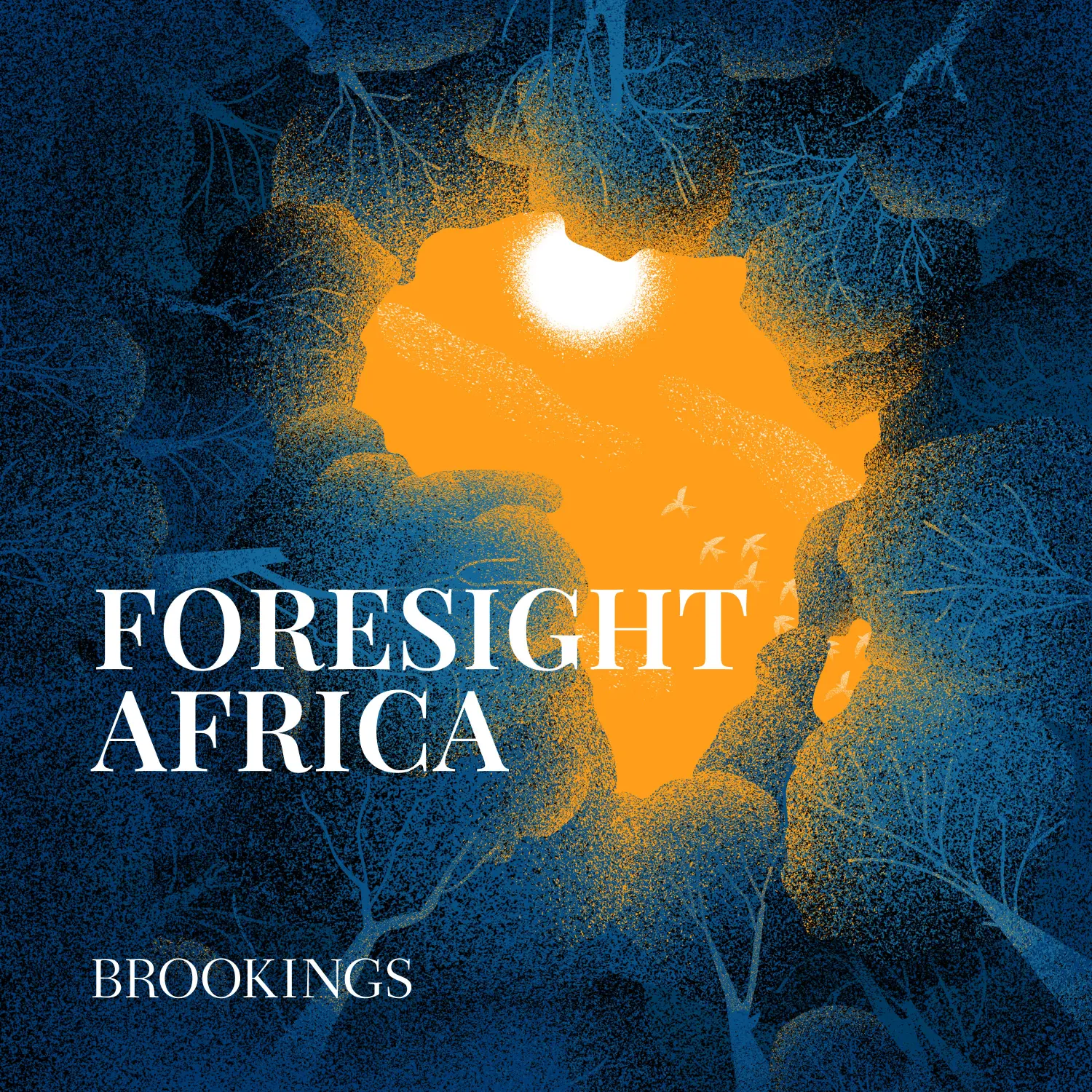
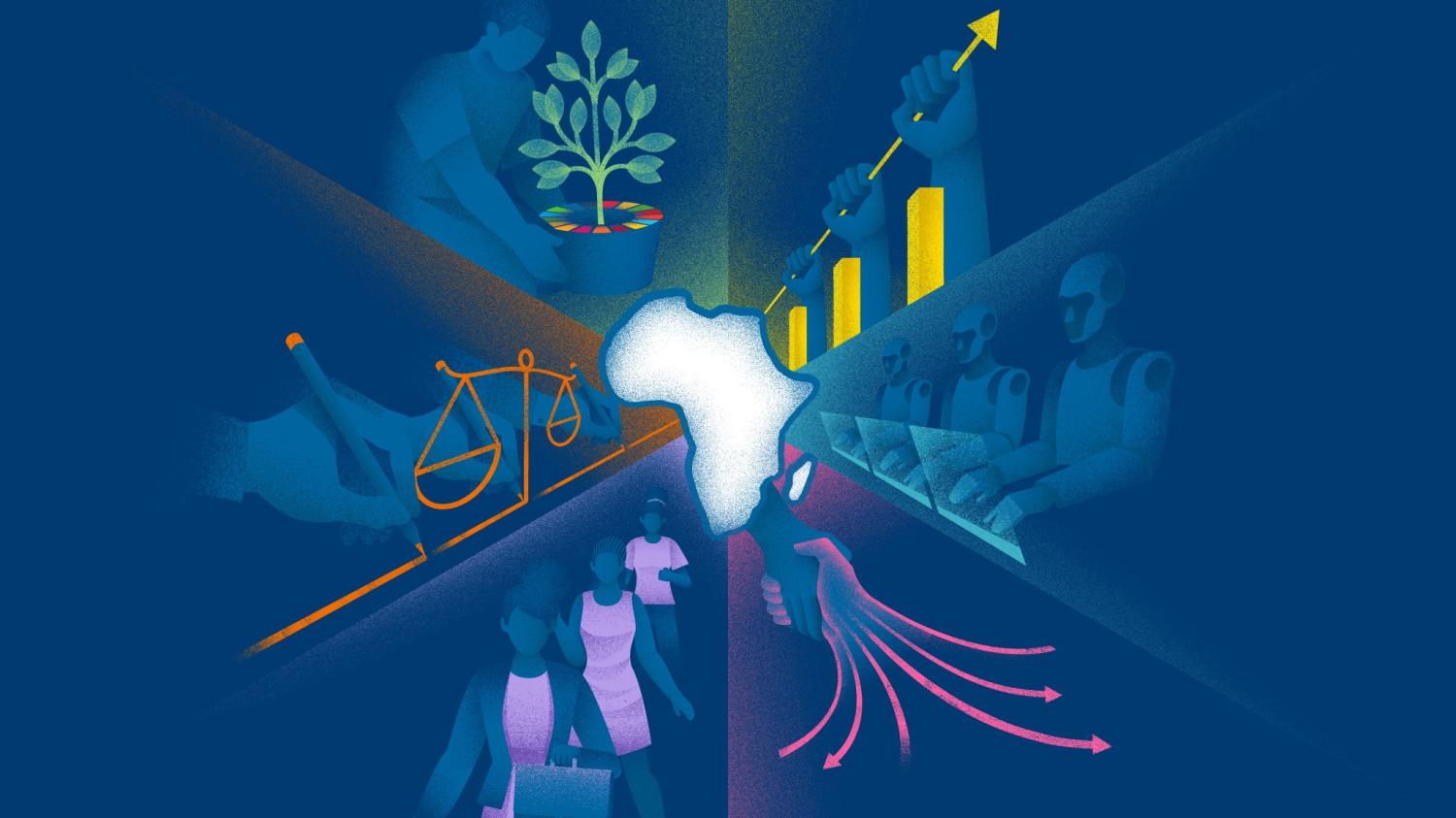
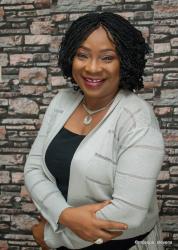
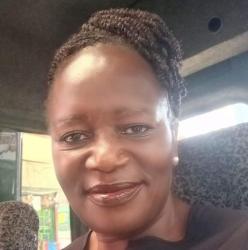


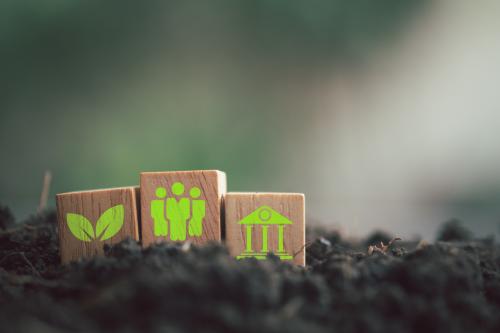
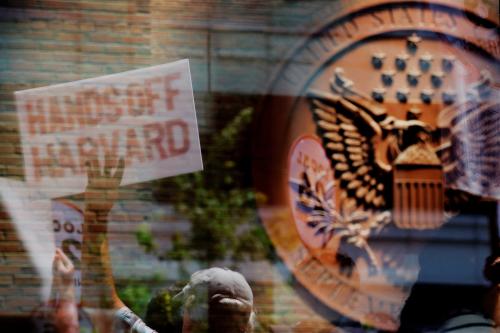
Commentary
PodcastMeet African girls’ educational needs by listening to their experiences
Listen on
Foresight Africa Podcast
May 28, 2025